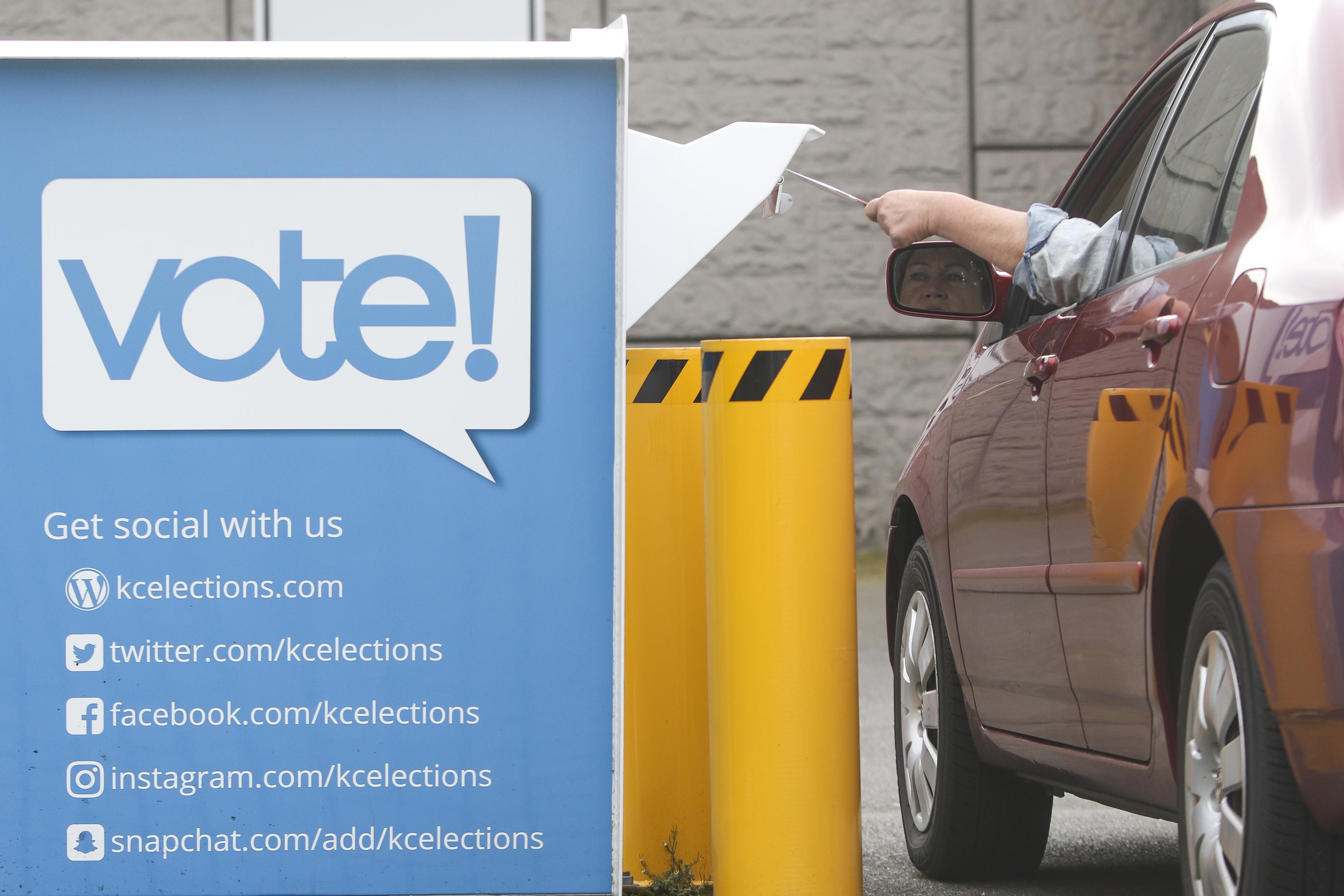On Friday, Louisiana became the first state to announce it would be postponing its April 4 presidential primary. Meanwhile, officials in the next four states to hold primaries announced the votes would go forward this coming Tuesday. With the Democratic primary contest winding down of its own momentum, how to hold an election during a pandemic may feel at the moment like one of the less urgent questions. With our national election just less than eight months away, though, it is not. Congress can and should act to secure the ability of voters to cast ballots this November sooner rather than later.
Most immediately, in light of the uncertain time frame for disruption of life and political activities due to the coronavirus, Congress should pass a law requiring states to offer no-excuse absentee balloting for the November elections. Congress has the power to do so, and it should fully fund the efforts. The bill has to be drafted carefully to protect all voters. But time is short. For this to happen, it must happen quickly.
First, here’s why we need such a law: In one-third of American states, one needs to offer an excuse acceptable to election officials in order to vote by mail. We are already seeing disruptions stemming from the need for social distancing and other extreme measures because of the pandemic. Ohio, which votes on Tuesday, has seen a shortage of older poll workers, reluctant to expose themselves at the polls. As noted, Louisiana announced on Friday it is postponing its primary for two months. As Jon Stokes argues in pushing for an expansion of absentee balloting, we don’t know how long social isolation and disruption are going to last, but it is not out of the question that we will still have problems in November.
Mail-in balloting, which is used almost exclusively in several states such as Washington and Colorado, would give voters a chance to vote without having to show up at the polls. It would ensure that fewer people would be disenfranchised. And importantly it would provide a good argument against an attempt to try to postpone voting in November (or worse yet having state legislatures appoint presidential electors themselves without a vote of the people). Our democracy needs to continue to function, and the election could well be a referendum on President Donald Trump’s leadership during the coronavirus crisis. The worst result would be for Trump’s own incompetence to provide a basis for keeping him in office longer.
Second, Congress has the power to pass such a law. The elections clause in Article I, Section 4 of the Constitution gives Congress broad powers to overrule the states on the “time, place, and manner” of holding congressional elections. It is this same broad power that gives Congress the ability to require states to follow certain streamlined procedures in registering voters, and to offer voter registration ability at government offices like the Department of Motor Vehicles. So long as Congress pays for all the costs, there should be no constitutional issue with requiring states to offer this means of voting. And paying for these costs is key, because even in states allowing for vote by mail, there could be millions more ballots cast by this method than are usually cast in this way, ramping up costs significantly.
A law requiring each state to offer a mail-in balloting option would have to be carefully crafted. It has to deal with the language provisions of the Voting Rights Act, which require language assistance for voters whose first language is not English. As Dale Ho argues, the rules for processing those absentee ballots have to be fair so voters are not disenfranchised by administrative error. And as Dave Daley argues that vote by mail is not without its problems for minority voters and other vulnerable voters, meaning the congressional legislation should address issues like reaching voters who are not regularly served by the postal service. Sen. Ron Wyden’s bill is a good start in thinking about what final federal legislation should look like.
Finally, this step would have to happen quickly because ramping up vote by mail puts a huge burden on election administrators. Ballots have to be produced (in multiple languages) and mailed to millions of people. Procedures have to be put in place to verify voter identity and to assure that voters voting by mail are voting freely and fairly. Although election-related fraud is very rare in the United States, it most commonly happens with absentee ballots, such as the absentee ballot tampering in North Carolina’s 9th congressional district in 2018, which caused the state board of election to throw out the election results and call a new election.
If we think of the country as at war with coronavirus right now, as part of the war effort we should put plans in place to insure that voters may cast their ballots easily and freely in November. This time the enemy is not another country. But national mobilization to protect our democracy from this virus is urgent, and enhanced use of vote by mail is one key tool of protection. If Congress does not act, millions of people who live in states without no-excuse absentee balloting face the risk of disenfranchisement.
